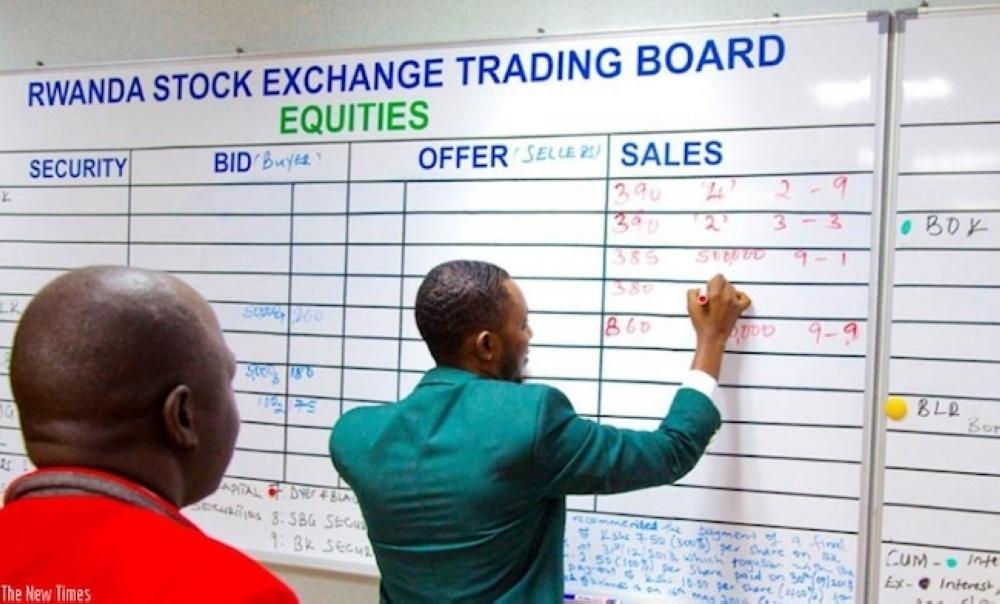Liban Mugabo
Africa-Press – Rwanda. The world’s financial order is shifting. In the United States, volatile markets, political brinkmanship, and unsustainable debt are forcing a historic recalibration of global capital flows. For decades, investors fleeing equity downturns found refuge in U.S. Treasury bonds—a ritual as predictable as it was profitable.
Today, that playbook is collapsing. The Federal Reserve’s relentless rate cuts, aimed at refinancing America’s $34 trillion debt cheaply, have rendered bonds safe but sterile. Meanwhile, tariff wars swing wildly—25% on Mexico one day, revoked the next—sowing chaos in boardrooms and accelerating the flight from equities.
For Rwanda, this unraveling is not a distant tremor but a clarion call. The Kigali International Financial Centre (KIFC) must step forward—not just as a local hub, but as the continent’s bridge between the West’s fading hegemony and Africa’s rising potential.
The stakes are existential. While 94% of U.S. stocks are owned by the wealthiest 8%, the Fed’s moves have inadvertently created a perverse trickle-down effect: cheaper debt and temporarily lower prices. But these are short-term fixes. Institutional investors—managing pensions, endowments, and insurance—face an increasingly grim reality.
Bonds yield little, equities are volatile, and global growth remains fragile. This duality is triggering a slow-motion exodus: over $17 trillion in bonds now trade at negative yields, pushing investors to seek new frontiers.
Enter Rwanda: a country with 7% annual GDP growth, a tech-savvy population, and a governance model that favors agility over inertia.
Africa’s financial landscape remains fragmented. Johannesburg and Nairobi dominate but are constrained by bureaucratic legacy systems. Here lies Rwanda’s opportunity. KIFC, launched in 2020, must not be just another hub.
It should be a disruptor: a platform where drone-delivered medical supplies meet blockchain-based registries, where green bonds finance climate-resilient infrastructure, and where multinationals find sanctuary from tariff wars.
Rwanda’s bonds already yield over 10%—a premium that belies the country’s improving credit profile and fiscal discipline. To investors numbed by near-zero returns, these yields, combined with Rwanda’s stability, are an attractive proposition. Yet perception lags reality. KIFC’s mission must be to close this gap and make Rwanda not a “frontier” bet, but a core allocation.
The U.S.-China trade war further accelerates this shift. As companies seek neutral manufacturing bases, Africa’s $3 trillion continental free trade area (AfCFTA) becomes a magnet. Rwanda’s Special Economic Zones, offering duty-free access to U.S. and European markets, are tailor-made for manufacturers seeking tariff-proof production hubs.
But factories alone won’t be enough. Where supply chains migrate, capital follows—trade finance, currency hedging, venture capital. This is KIFC’s sweet spot: becoming the financial engine behind Africa’s industrial reboot. Recent partnerships, like Rwanda’s electric vehicle production with Volkswagen, are prototypes. KIFC must now replicate this model across sectors, positioning itself as the indispensable nerve center for continental growth.
Yet vision without execution is hallucination. Rwanda’s policymakers must tackle four non-negotiables:
Regulatory Parity: KIFC must align with global standards—adopting the UNCITRAL Model Law on secured transactions and enforcing arbitration under the New York Convention.
Liquidity Solutions: Launch an “Africa Growth Bond” in partnership with the African Development Bank to provide benchmark instruments for wary investors.
Digital Infrastructure: Develop a central bank digital currency interoperable with KIFC’s platforms, positioning Rwanda as a haven for crypto-native capital.
Human Capital: Establish a KIFC Skills Accelerator with partners like MIT or LSE to cultivate CFA-certified analysts, fintech engineers, and arbitrators.
Time, however, is the enemy. Rival hubs like Accra and Abidjan are moving fast. Meanwhile, the Fed’s current rate-cutting spree—which drives capital toward emerging markets—could reverse swiftly if inflation rebounds, slamming shut the liquidity window. Rwanda’s response must mirror its post-genocide transformation: relentless, precise, and collective.
KIFC must bypass red tape, offer tax holidays to first-movers, and deploy sovereign guarantees to de-risk strategic projects. Rwanda must forge alliances with sovereign wealth funds in Dubai and Singapore and lobby credit agencies to fast-track its ascent to investment grade.
This is not a conventional policy challenge. It is a defining test: can Rwanda leverage global chaos into national opportunity? Today, capital is seeking more than returns—it is seeking narratives. Rwanda’s story—of resilience, innovation, and unity—resonates in an era of division and uncertainty. But narratives require actors. President Kagame’s leadership has anchored Rwanda’s rise; now, the private sector, civil service, and diaspora must coalesce to scale KIFC into a global force.
The path is clear: reject incrementalism, embrace audacity, and act with the urgency of a nation that understands the price of hesitation. Global capital is watching. Rwanda must now show it is ready to lead.
Source: The New Times
For More News And Analysis About Rwanda Follow Africa-Press






